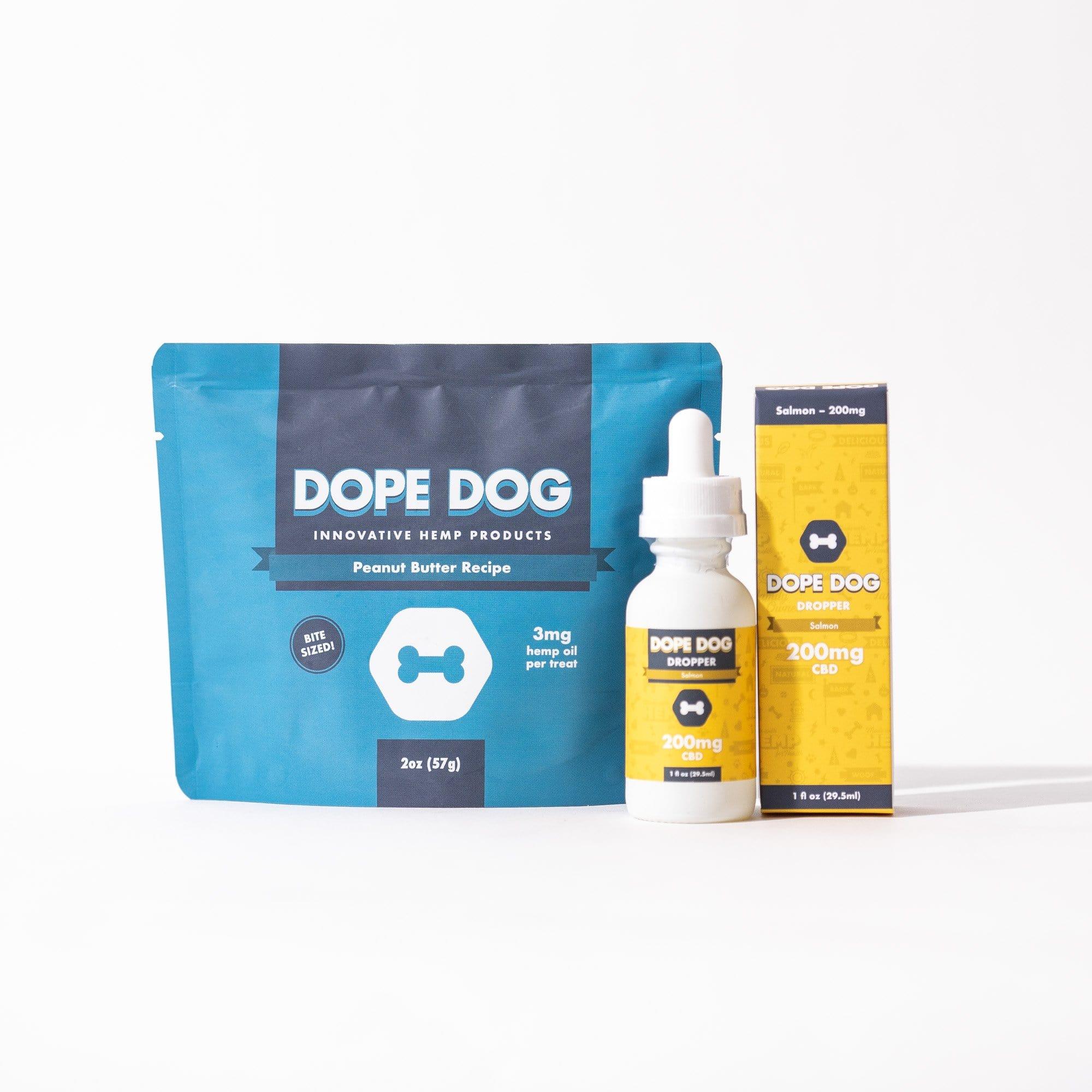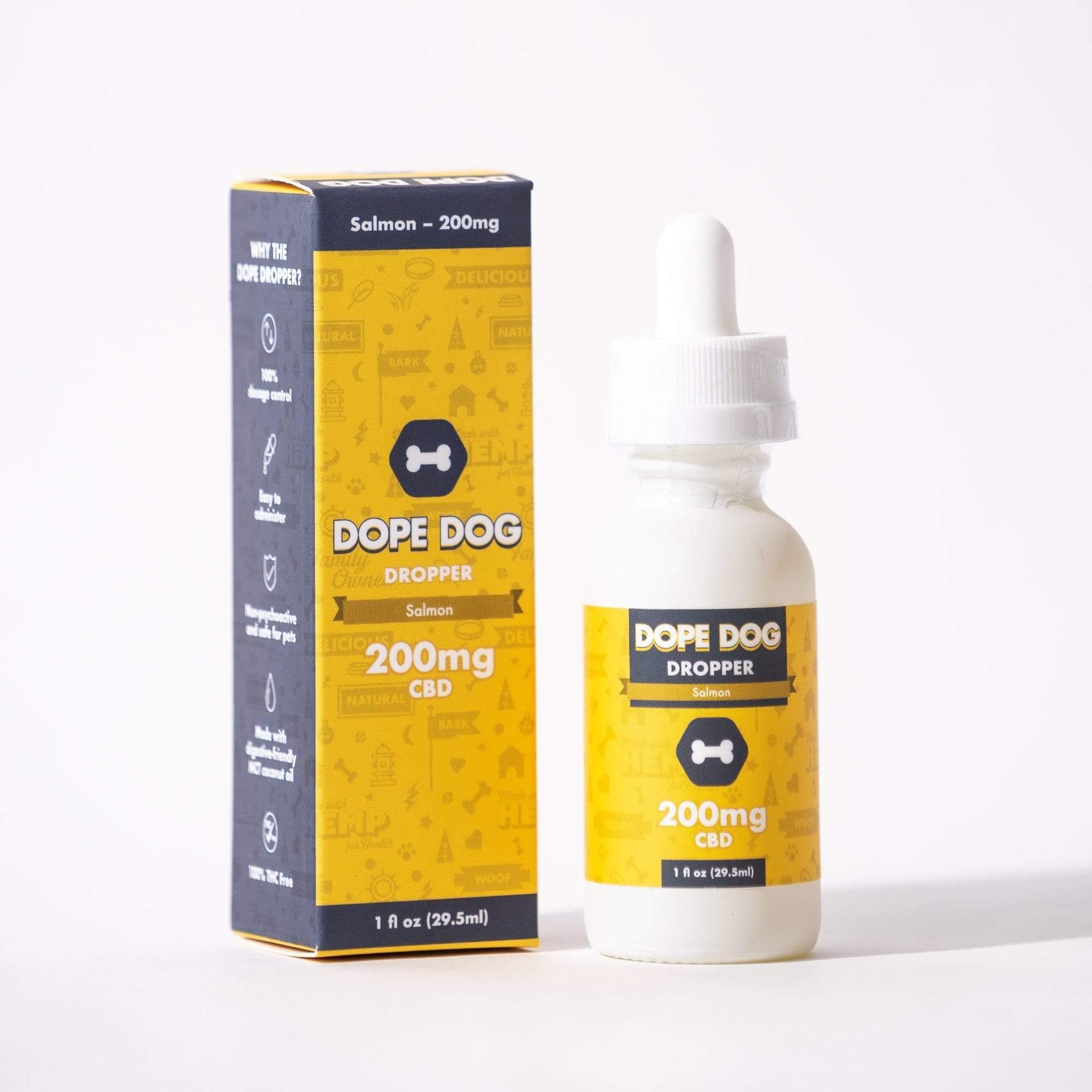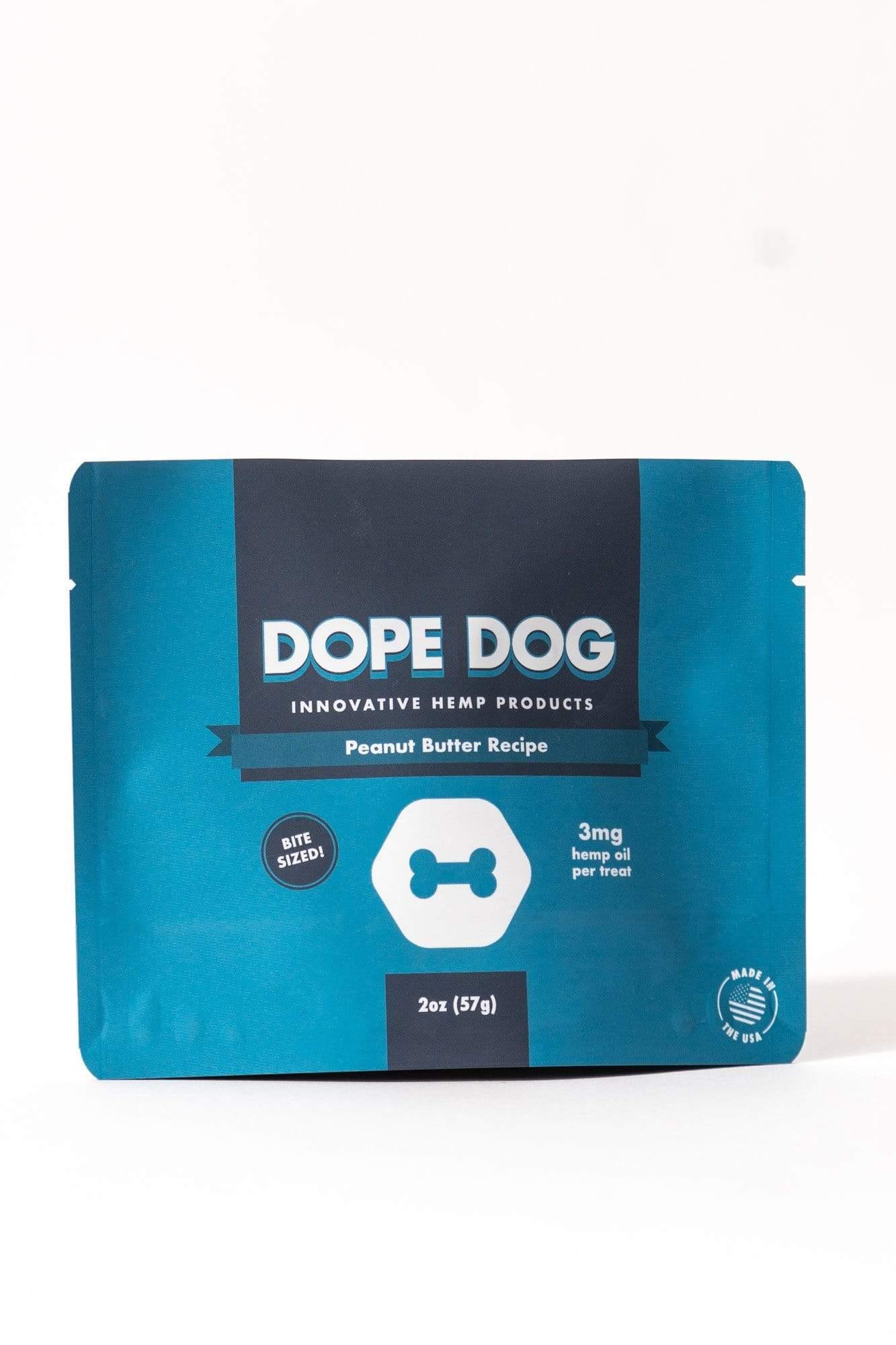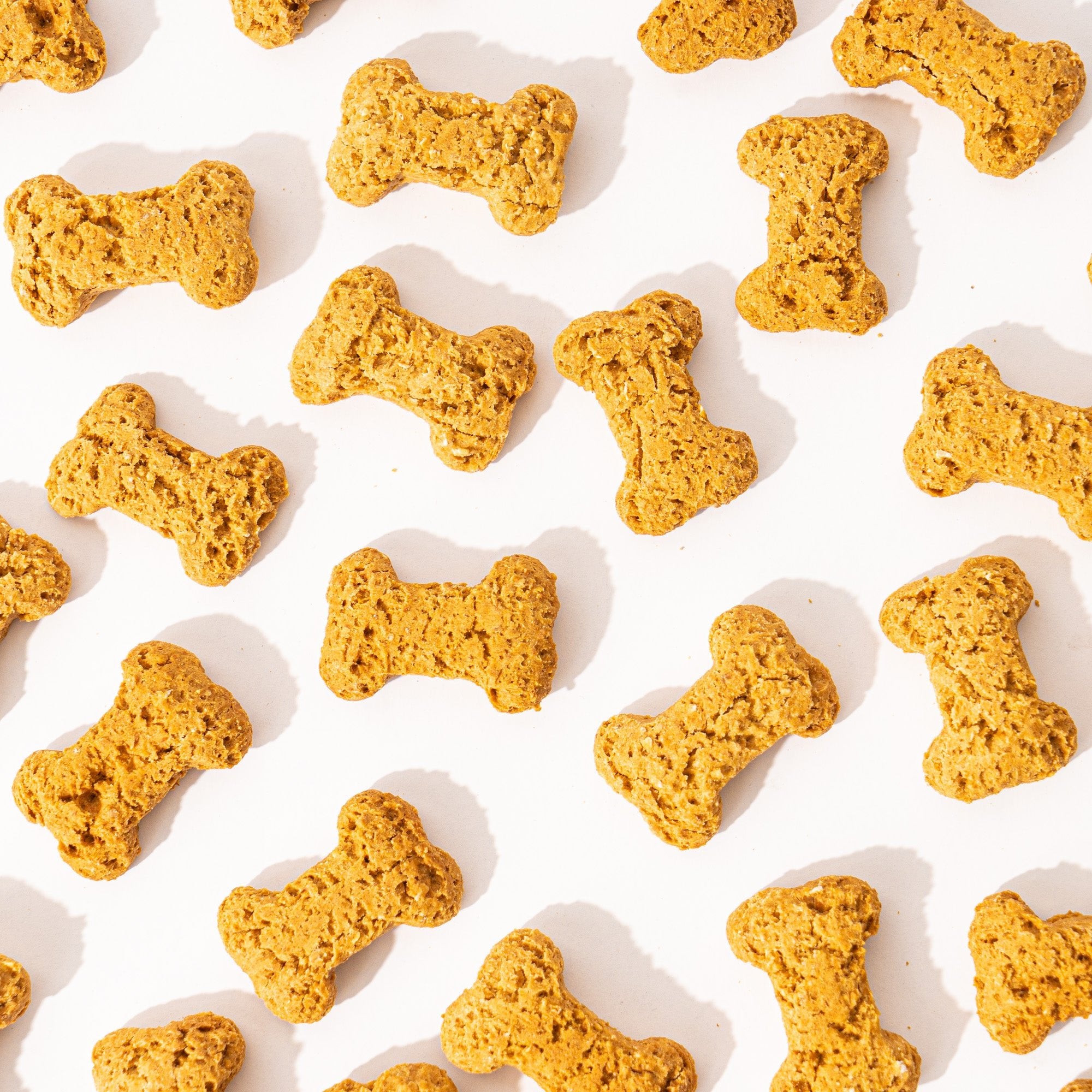Sushi has become a popular and beloved cuisine around the world. Its combination of fresh fish, rice, and seaweed creates a unique culinary experience. But as a dog owner, you may be wondering if it's safe to share this delicious delicacy with your furry friend. Can dogs eat sushi? In this comprehensive guide, we will delve into the world of sushi and explore whether it can be a part of your dog's diet.
Want an all-natural dog treat to take to the park? Shop Dope Dog’s most popular CBD treats and products.
Understanding What Sushi Is: Components and Common Ingredients
Sushi is a traditional Japanese dish that has gained immense popularity worldwide. To determine if dogs can safely eat sushi, it is crucial to understand its components and common ingredients. Let's delve into the world of sushi and explore what makes up this delectable cuisine.
-
Rice
Rice is the foundation of sushi and serves as the base for most sushi rolls. It provides carbohydrates and can be a good source of energy for dogs. However, it's important to note that dogs have different dietary needs than humans, and their bodies may not process carbohydrates as efficiently. Too much rice can lead to weight gain and potential digestive issues in dogs. Portion control and moderation are key when it comes to feeding rice to your furry friend.
-
Fish
Fish is a key component of sushi and provides essential nutrients such as protein and omega-3 fatty acids. However, not all types of fish are safe for dogs to consume. Raw fish, such as salmon and tuna, can contain bacteria and parasites that may pose health risks to dogs. Additionally, certain fish species, like pufferfish or blowfish, contain toxins that are highly dangerous for dogs. It is crucial to choose fish options that are safe and appropriate for canine consumption.

-
Seaweed
Seaweed, specifically nori, is used to wrap sushi rolls. Nori is generally safe for dogs to consume in small quantities. It contains vitamins, minerals, and fiber that can be beneficial for their digestive health. However, some dogs may have difficulty digesting seaweed or may be sensitive to it. It's essential to monitor your dog for any adverse reactions after consuming seaweed.
-
Vegetables
Sushi often includes a variety of vegetables, such as cucumber, avocado, and carrots. These vegetables can provide essential vitamins and minerals. However, it's important to consider the specific vegetables used and whether they are safe for dogs. For example, avocado can be toxic to dogs, so it should be avoided. Cucumbers and carrots, on the other hand, are generally safe and can offer additional nutritional benefits.
-
Other Ingredients
Sushi can also include other ingredients like soy sauce, wasabi, and pickled ginger. These condiments and flavorings should be avoided when serving sushi to dogs. Soy sauce contains high levels of sodium, which can be harmful to dogs, leading to issues like dehydration and electrolyte imbalances. Wasabi and pickled ginger can also cause digestive upset in dogs. It's best to serve sushi to dogs without any additional seasonings or condiments.
Understanding the components and common ingredients of sushi is crucial for determining whether it is suitable for dogs. While some elements like rice and certain fish can be beneficial, it's important to be cautious and make informed decisions based on your dog's specific dietary needs and any potential risks.

Related: Why Is My Dog Acting Weird?
Potential Risks and Benefits of Sushi for Dogs
Sushi, with its combination of various ingredients, can present both potential risks and benefits when it comes to feeding it to dogs. Understanding these factors is crucial in making an informed decision about incorporating sushi into your dog's diet. Let's explore the potential risks and benefits of sushi for dogs.
Nutritional Value of Sushi
Sushi can offer certain nutritional benefits for dogs when selected and prepared appropriately. The fish used in sushi is a good source of protein and omega-3 fatty acids, which are essential for your dog's overall health. Additionally, some vegetables used in sushi, like cucumbers and carrots, can provide vitamins and minerals. However, it's important to remember that dogs have specific dietary requirements, and sushi alone may not provide a well-rounded and balanced diet.
Potential Health Risks and Toxins
One of the primary concerns when it comes to feeding sushi to dogs is the potential health risks and presence of toxins. Raw fish, commonly used in sushi, can contain harmful bacteria and parasites that may cause digestive issues and infections in dogs. Additionally, certain types of fish, such as puffer fish or blowfish, contain toxins that can be fatal for dogs if consumed. It is crucial to choose sushi options that use cooked fish or fish that has been properly prepared to eliminate the risk of contamination.
Related: Can Dogs Eat Scallops?
Allergic Reactions and Intolerance
Dogs, like humans, can have allergies or intolerances to certain foods. While sushi ingredients like fish and vegetables are generally safe, some dogs may have allergic reactions or intolerances to specific components. It's important to observe your dog closely after consuming sushi and watch for any signs of allergic reactions such as itching, swelling, or gastrointestinal upset. If any adverse reactions occur, it's best to avoid feeding sushi to your dog in the future.

Mercury Levels in Fish
Mercury is a concern when it comes to consuming fish, especially for dogs. Some types of fish used in sushi, such as tuna, can contain higher levels of mercury. Mercury can be toxic to dogs and may lead to neurological issues or other health problems if consumed in excessive amounts. It's essential to choose fish options with lower mercury levels or limit the frequency of sushi consumption to minimize the risk.
Portion Control
Portion control is crucial when feeding sushi to dogs. Sushi rolls are typically larger than what a dog would consume in one sitting, and overfeeding can lead to weight gain and other health issues. It's important to moderate the portion size and consider sushi as an occasional treat rather than a regular part of their diet.
Understanding the potential risks and benefits of sushi for dogs is essential in making informed decisions about their dietary choices. While there are some potential benefits in terms of nutritional value, it's crucial to be aware of the potential health risks, toxins, allergic reactions, and the importance of portion control. Consulting with your veterinarian can provide additional guidance specific to your dog's individual needs and health condition.
Related: Can Dogs Eat Pinto Beans?
Types of Sushi Dogs Can and Can't Eat
When it comes to sushi, not all options are safe for dogs to consume. It's important to understand the types of sushi that dogs can and can't eat in order to ensure their safety and well-being. Let's explore the different categories of sushi and determine which ones are suitable for our furry friends.
Safe Sushi Options for Dogs
- Cooked Fish Sushi: Sushi rolls made with cooked fish, such as cooked salmon, cooked shrimp, or cooked white fish, can be safe for dogs to eat. The fish should be thoroughly cooked to avoid any potential bacteria or parasites.
- Vegetable Sushi: Sushi rolls that contain dog-safe vegetables, such as cucumber, carrots, or sweet potato, can be a healthy and safe option for dogs. Ensure that the vegetables are prepared without any seasonings or condiments that may be harmful to dogs.
- Sushi with Rice and Seaweed Only: Plain sushi rolls that consist of rice and seaweed without any additional ingredients can be safe for dogs in moderation. However, keep in mind that while rice is generally safe for dogs, it should be given in moderation due to its high carbohydrate content.

Related: Can Dogs Eat Bean Sprouts?
Unsafe Sushi Options for Dogs
- Raw Fish Sushi: Sushi rolls made with raw fish, such as raw salmon or raw tuna, should be avoided when feeding sushi to dogs. Raw fish can contain bacteria, parasites, and potential toxins that may pose a health risk to dogs.
- Sushi with Seasonings or Sauces: Sushi rolls that include soy sauce, wasabi, or other seasonings should not be given to dogs. These condiments can be high in sodium or contain ingredients that may be harmful to dogs' digestive systems.
- Sushi with Unsafe Ingredients: Sushi rolls that contain ingredients that are toxic to dogs, such as avocado or certain types of fish like pufferfish, should be avoided at all costs. These ingredients can cause severe health issues and even be fatal to dogs.
It's important to note that even within the safe sushi options, portion control is crucial. Sushi should only be given to dogs as an occasional treat and not as a regular part of their diet. Additionally, always monitor your dog closely for any signs of adverse reactions or digestive upset after consuming sushi.
Understanding the types of sushi that dogs can and can't eat is essential for their safety and well-being. By selecting safe ingredients and avoiding potentially harmful ones, you can ensure that your furry friend can enjoy a sushi treat without any risks to their health.
Related: CBD for itchy dogs
How to Serve Sushi to Dogs Safely
Once you have determined that it is safe to feed sushi to your dog, it is important to take the necessary precautions to serve it safely. Here are some guidelines on how to serve sushi to dogs in a safe and responsible manner:
Preparing Sushi for Dogs
- Choose Safe Ingredients: Select sushi ingredients that are safe for dogs, such as cooked fish, dog-friendly vegetables, plain rice, and seaweed. Avoid using any unsafe ingredients like raw fish, avocado, or seasonings that may be harmful to dogs.
- Cook the Fish Thoroughly: If you are using cooked fish, ensure that it is thoroughly cooked to eliminate any potential bacteria or parasites that could be harmful to your dog.
- Prepare Bite-Sized Pieces: Cut the sushi into small, bite-sized pieces that are easy for your dog to chew and digest. This will also help with portion control and prevent your dog from swallowing large pieces.

Portion Control
Serve in Moderation: Sushi should be given to dogs as an occasional treat and not as a regular part of their diet. The high carbohydrate content in rice should be taken into consideration, and portion sizes should be moderate to avoid weight gain or digestive issues.
Consider Your Dog's Size: Adjust the portion size based on your dog's size and dietary needs. Smaller dogs will require smaller portions compared to larger breeds.
Related: Can Dogs Eat Tortilla Chips?
Monitoring Your Dog After Eating Sushi
Watch for Adverse Reactions: After your dog has consumed sushi, closely monitor them for any signs of adverse reactions such as vomiting, diarrhea, or allergic symptoms like itching or swelling. If any of these symptoms occur, discontinue feeding sushi to your dog and consult with your veterinarian.
Provide Fresh Water: Ensure that your dog has access to fresh water after eating sushi. This will help with digestion and prevent dehydration.
Observe Stool Quality: Pay attention to your dog's stool to ensure that they are digesting the sushi properly. If you notice any abnormalities, consult with your veterinarian.
Seek Veterinary Advice: If you have any concerns or questions about serving sushi to your dog, it is always best to consult with your veterinarian. They can provide personalized guidance based on your dog's specific needs and health conditions.
By following these guidelines, you can serve sushi to your dog safely and minimize any potential risks. Remember to prioritize portion control, choose safe ingredients, and monitor your dog for any adverse reactions. Serving sushi as an occasional treat can add variety to your dog's diet and provide them with a special culinary experience.
Related: Can Dogs Eat Guava?
Alternatives to Sushi for Dogs

If sushi is not a suitable option for your dog or if you simply want to explore alternative treats, there are several healthy alternatives that you can consider. Let's explore some alternatives to sushi that can still provide your dog with a delicious and nutritious treat.
Healthy Treats for Dogs
- Fresh Fruits and Vegetables: Many dogs enjoy the taste and texture of fresh fruits and vegetables. Offer your dog bite-sized pieces of dog-safe fruits like apples, bananas, or watermelon. Vegetables such as carrots, green beans, or sweet potatoes can also be great options. These treats are not only tasty but also provide essential vitamins and minerals.
- Lean Cooked Meats: Cooked lean meats, like chicken or turkey, can be a healthy and protein-rich alternative to sushi. Ensure that the meat is plain and free from seasonings, spices, or any harmful ingredients. Cut the meat into small, easily manageable pieces for your dog to enjoy.
- Frozen Treats: During hot weather or as a special treat, frozen treats can be a great alternative. You can make homemade frozen treats by blending dog-friendly fruits like strawberries or blueberries with plain yogurt and freezing the mixture in ice cube trays. These treats can provide cooling relief and a tasty snack for your dog.
Related: Can Dogs Eat String Cheese?
Homemade Dog-Friendly Sushi
If you still want to give your dog a sushi-like experience, you can create homemade dog-friendly versions of sushi. Here's a simple recipe to try:
Dog-Friendly Sushi Ingredients:

- Cooked and cooled white rice (without seasonings or added salt)
- Cooked and cooled fish (e.g., cooked salmon or white fish)
- Dog-friendly vegetables like cucumber or cooked sweet potato
- Dog-safe seaweed (nori) sheets
- Dog-Friendly Sushi Preparation:
- Spread a thin layer of rice on a sheet of nori.
- Place small pieces of cooked fish and chopped vegetables on top of the rice.
- Roll the sushi tightly and cut it into small, bite-sized pieces.
- Serve the homemade dog-friendly sushi as a special treat to your furry friend.
Remember to always consider your dog's specific dietary needs and any allergies or intolerances they may have. It's essential to introduce any new treats gradually and monitor your dog for any adverse reactions.
By exploring these alternatives, you can provide your dog with a variety of tasty and healthy treats that are safe and suitable for their consumption. Whether it's fresh fruits and vegetables, lean cooked meats, or homemade dog-friendly sushi, you can still indulge your dog with delicious treats while keeping their health and well-being in mind.


![Why is My Dog's Ear Swollen? [MUST KNOW!]](http://dope.dog/cdn/shop/articles/tim-higham-QxDXORRktWE-unsplash-555717.jpg?v=1697236049&width=1536)















